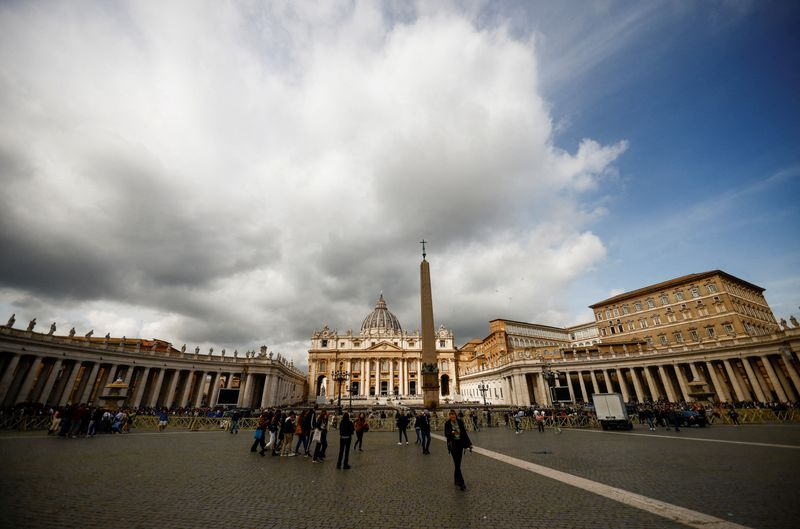By Philip Pullella
VATICAN CITY (Reuters) - Pope Francis on Tuesday accepted the resignation of the bishop of Knoxville, Tennessee following a Vatican investigation triggered by a rebellion by priests and allegations that the bishop mishandled a sexual abuse investigation.
The one-line statement from the Vatican gave no reason for the resignation of Bishop Richard Stika, who has denied any wrongdoing.
Stika, who at 65 is 10 years short of the usual retirement age for bishops, said in a statement that he had handed in his resignation primarily because of a string of health issues, some of which he said were "life threatening".
He added: "I recognize that questions about my leadership have played out publicly in recent months. I would be less than honest if I didn't admit that some of this has weighed on me physically and emotionally".
A lawsuit filed against Stika last year accused him of failing to stop a seminarian from raping and sexually harassing a male diocesan employee and then making defamatory remarks against the employee.
The seminarian at the centre of the accusation lived with Stika and a retired American cardinal.
In 2011, 11 priests from the Knoxville diocese wrote to the Vatican ambassador to the U.S. complaining about what they said was Stika's heavy-handed, authoritarian and vindictive way running the diocese.
According to the Pillar Catholic website the priests wrote of "persistently problematic tendencies of a bishop which compromise the mission of the local Church". They asked the Vatican for "merciful relief" from Stika's rule.
In his statement on the website of the Knoxville diocese, Stika, who has been bishop of Knoxville since 2009, said: "I offer my genuine and heartfelt apology to anyone I have disappointed over the years".
The Vatican sent investigators to the diocese last year after various allegations against Stika.

Last year, about 170 Catholics in the Chattanooga area, which is part of the Knoxville diocese, sent a letter to the Vatican ambassador asking for Stika's removal.
The U.S. bishops conference said the Vatican had appointed an administrator to run the troubled diocese until the pope appointed a new bishop. (This story has been corrected to change the year to 2009 from 1969 in paragraph 9)